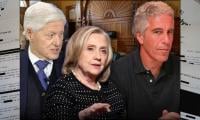Nasty discourse
The National Assembly – the august house where the nation’s political and socio-economic course is set through legislation – was witness to some extremely distasteful scenes during the budget debate. Lawmakers from both the treasury and the opposition benches competed to outperform each other in lowering the stature of this hallowed ground.
Once again, the ruling party was caught in ‘opposition mode’. It stole the show with some of its hyperactive MPs using all the ‘democratic’ tools at hand to drown out the voice of Leader of Opposition Shahbaz Sharif as he dared to dissect the government’s annual budget.
As if to forewarn this ugliness, Information Minister Fawad Chaudhry had earlier made it clear that the opposition should not expect a free hand if it opted for disrespecting and interrupting the prime minister and ministers’ speeches, referring to the opposition’s noisy protest during Finance Minister Shaukat Tarin’s budget presentation. He warned the ruling party’s political opponents to be ready for a tit-for-tat response to their provocation.
Pakistan’s parliamentary history is replete with such instances where legislators from rival parties turned the House into a complete mess – both the PPP and the PML-N have a rich history of triggering political mayhem. But such unrelenting and aggressive posturing by a ruling party, which claims to be the harbingers of change, looks extraordinary. The PTI’s approach to confront the opposition head-on –even in parliament – is setting a new precedent in Pakistan’s not so rosy political culture.
Irrespective of how effective this ‘fifth generation political warfare’ has proved so far to the PTI, it could have some unintended and adverse long-term consequences on the political landscape and society at large. Parliamentarians from all sides of the political divide have a great responsibility on their shoulders to promote public trust in democratic dispensation among the country’s disenchanted people, who have braved authoritarian rules partly due to the failures and disunity of democratic forces.
There is a sizable majority of politicians, who arguably stay away from such antics in parliament, but some political ‘tiktokers’ either find it entertaining or obligatory to create a scene, defaming the whole House. It is however unclear whether they often act as lone actors or play by a script handed to them to further the political goals of their respective parties.
Blame games and criticism of political rivals is a normal occurrence in a democracy, but the element of hatred and animosity seen in today’s political discourse could leave devastating consequences on society. What transpired recently between PTI leader Dr Firdous Ashiq Awan and PPP MNA Qadir Khan Mandokhel during a TV talk show, in which an argument turned physical, reflects this very trend.
Clashes between supporters of political parties during the Daska by-election earlier this year, which resulted in lives lost, and last year’s violence in the Gilgit-Baltistan polls are other examples which indicate a revulsion that is transforming into outright enmity among rival political leaders, who go on to poison the minds of their supporters. Particularly the Punjab province, where the PTI and PML-N both have strongholds, could turn into a political volcano in the next general elections if politicians don’t dial down their toxic rhetoric.
And while the PTI’s apparent shift from non-stop opposition bashing to highlighting its success stories is welcome change, the National Assembly episode shows there is still a long way to go for the ruling party to set a healthy example.
It should be realised that the stakes for the next general election will be much higher for the opposition parties, who are bogged down with what they call unfair corruption cases, to regain power or at least stay relevant in the future.
They will doubtlessly employ all political resources at their disposal to prevent the re-election of their common nemesis, which they claim has failed on economic and other fronts. So, in this charged environment, the PTI’s antagonistic discourse could work as fuel to fire, and such a catastrophic scenario has the potential to take Pakistan’s shaky democratic march back to square one.
Though National Assembly Speaker Asad Qaiser at last swung into action and barred seven lawmakers, three of them from the treasury benches, from entering the House, the heads of all parties should be unequivocal in their condemnation of what transpired.
In an ideal world, Prime Minister Imran Khan would condemn whatever happened and reprimand the members of his party found involved in the disorder, as would Leader of Opposition Shahbaz Sharif and PPP chief Bilawal Bhutto.
This gesture would go a long way in improving the vitiated political environment and cultivate progressive political norms. But in our political culture, which is gradually becoming desensitised to seeing pitched battles in Parliament, such an expectation may just be wishful thinking.
The writer is news editor on the London desk, The News.
Email: khurram.mateen@gmail.com
-
 Jennifer Garner Drops Parenting Truth Bomb On Teens With Kylie Kelce: 'They're Amazing'
Jennifer Garner Drops Parenting Truth Bomb On Teens With Kylie Kelce: 'They're Amazing' -
 AI Is Creating More Security Problems Than It Solves, Report Warns
AI Is Creating More Security Problems Than It Solves, Report Warns -
 'Game Of Thrones' Prequel 'A Knight Of The Seven Kingdoms' New Ratings Mark Huge Milestone
'Game Of Thrones' Prequel 'A Knight Of The Seven Kingdoms' New Ratings Mark Huge Milestone -
 Apple Seeks To Dismiss Fraud Suit Over Siri AI, Epic Injunction
Apple Seeks To Dismiss Fraud Suit Over Siri AI, Epic Injunction -
 Delroy Lindo Explains The Crucial Role Of Musical Arts In Setting Up His Career Trajectory
Delroy Lindo Explains The Crucial Role Of Musical Arts In Setting Up His Career Trajectory -
 Timothée Chalamet Reveals How He Manages To Choose The Best Roles For Himself
Timothée Chalamet Reveals How He Manages To Choose The Best Roles For Himself -
 Princesses Beatrice, Eugenie’s Conflict Gets Exposed As Mom Fergie Takes Over The Media
Princesses Beatrice, Eugenie’s Conflict Gets Exposed As Mom Fergie Takes Over The Media -
 Kate Middleton Plays Rock-paper-scissors In The Rain
Kate Middleton Plays Rock-paper-scissors In The Rain -
 Lindsay Lohan On 'confusing' Teen Fame After 'Mean Girls': 'I Should Have Listened To My Mom And Dad'
Lindsay Lohan On 'confusing' Teen Fame After 'Mean Girls': 'I Should Have Listened To My Mom And Dad' -
 Savannah Guthrie Mom Update: 'Today' Show Sees Huge Ratings Boost Amid Search For Nancy Intensifies
Savannah Guthrie Mom Update: 'Today' Show Sees Huge Ratings Boost Amid Search For Nancy Intensifies -
 Hillary Clinton To Testify In Epstein Probe Alongside Bill Clinton
Hillary Clinton To Testify In Epstein Probe Alongside Bill Clinton -
 Meghan Markle, Prince Harry End Jordan Trip With Meaningful Hospital Visit
Meghan Markle, Prince Harry End Jordan Trip With Meaningful Hospital Visit -
 AI Boyfriends Gain Popularity In China As Young Women Turn To Virtual Romance
AI Boyfriends Gain Popularity In China As Young Women Turn To Virtual Romance -
 Prince William Receives Reality Check As His Media Strategy Fails
Prince William Receives Reality Check As His Media Strategy Fails -
 Zach Braff Reflects On Doing Odd Jobs Ahead Of Major Career Breakthrough In 2001's 'Scrubs'
Zach Braff Reflects On Doing Odd Jobs Ahead Of Major Career Breakthrough In 2001's 'Scrubs' -
 Google Rolls Out Nano Banana 2 With 4K AI Image Generation
Google Rolls Out Nano Banana 2 With 4K AI Image Generation



